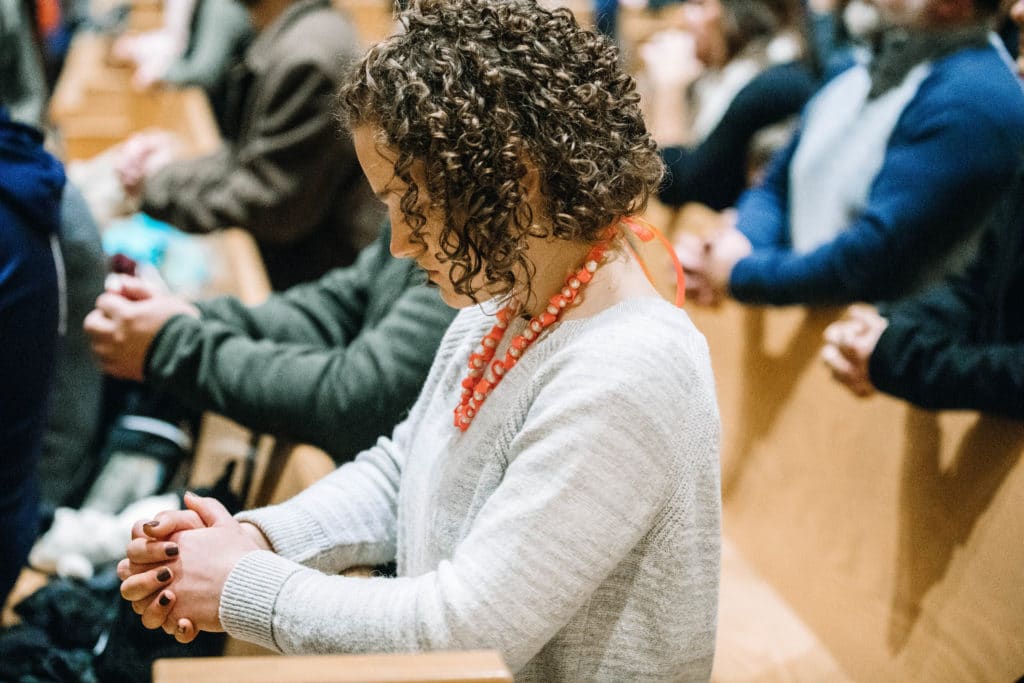During St. Catherine of Siena’s mystical visions, God shared very deep, and very clear, insights on prayer — recorded in her book, The Dialogue. He spoke to her about balancing praying out loud and in silence. It’s easy to pray with words, reciting a prayer or reading a meditation. It’s not so easy to pray with our minds — keeping our thoughts totally on God. But we need this mindfulness to make the most of our time in prayer.
God shared, “But do not think that the soul receives such ardor and nourishment from prayer, if she pray only vocally, as do many souls whose prayers are rather words than love. Such as these give heed to nothing except to completing Psalms and saying many paternosters.”
There is more we can do to show God we love Him than reciting a prayer. It takes more than words. He continues, “The soul is not required to do [vocal recitation], for, in doing only this, she bears but little fruit, which pleases Me but little.”
At this point in St. Catherine’s vision, the message is obvious: We shouldn’t just pray with words. Yet, that doesn’t mean we should stop doing it. God said, “She should nevertheless continue in vocal prayer, while she is yet imperfect, so as not to fall into idleness. But she should not say her vocal prayers without joining them to mental prayer.” So keep up your Our Fathers, Hail Marys, Memorares, novenas, or other favorite prayers.
Now, what does it actually mean to pray with your mind? God explained to St. Catherine that it means to “elevate her mind in My love” while saying a prayer. He told her that this will help her “recognize My goodness in herself and continue her exercises with true humility.”
As we pray aloud, we should direct our thoughts toward God, reflecting on His endless mercy and love. Mindful prayer keeps our thoughts from wandering and helps us consider the meaning of the words we say, the petitions we offer and the adoration we give.
Of course, it was a probably a lot easier for St. Catherine to focus her thoughts on God with a vision of Him right in front of her! We likely won’t have the same mystical experience to launch us into mental prayer, but practicing it will help us get there. As God shared, “Mental prayer is reached by exercise and perseverance.”
He goes on to tell St. Catherine that if we feel His presence during prayer, we “should abandon vocal prayer” to focus on Him with our minds — not our voices. After we receive Him this way, we can “resume the vocal prayers” but should not worry or feel guilty for pausing them, or if we can’t finish them. Mindful prayer is a more intimate conversation with God, so we should not ignore a call to it.
God also enlightens St. Catherine with the insight that any act of charity counts as a prayer: “Whatever he may contribute, by words or deeds, towards the salvation of his neighbor, is virtually a prayer, although it does not replace a prayer.” Any kind word or deed is lifted to God as a prayer.
So take up a greater sense of mindfulness, and a renewed spirit of charity. Both will inspire your prayer and life to grow in love, faith and discipleship.




